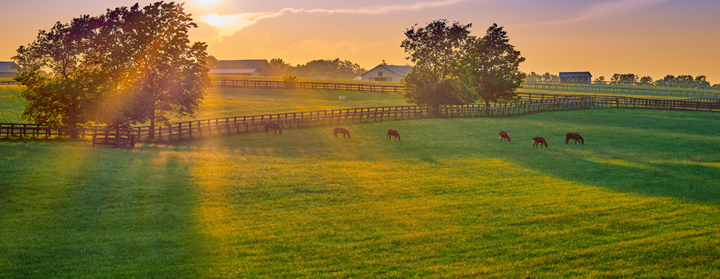Buying a horse property is a very different experience from a conventional home purchase. The first and most important step is to work with an experienced equestrian specialist, but there are some additional items you should also consider before buying.
Location, Location, Location
When looking at equestrian properties, one of the most important things to consider is location. You want to make sure the property is near resources you will need like feed and tack stores, local vets, and more. You should also consider everyday needs, such as groceries, gas, shopping, and community amenities.
Knowing Your Needs
Having a clear vision of your specific needs is a very important step when buying an equestrian property. For example, a casual rider doesn’t require the same capability and organization as a professional equestrian, and similarly, a professional will often need a horse property with strict specifications.
Property Features and Facilities
Something to consider is the soil type on the land you’re looking at. There are 12 different soil types and some of the best for horses are sandy, loamy, organic soils. Not only is this the best option for your animals, but these characteristics will also impact the quality of grasses for pasture growth. Whether you decide to pasture or hay feed, ensure there is adequate hay storage, especially for winter months when, depending on what part of the country you live in, grass may not be as ample.
Other important features to consider are:
- Does it have indoor stalls?
- Does it have multiple fenced pastures for rotating your livestock? This will ensure the ultimate health of your pasture and the grass that is produced.
- Are riding trails nearby or will you have to trailer to get to trails?
- Is there an indoor or outdoor arena? These are important for training, breaking, and even veterinary care, at times.
- Does it have a secure tack room that rodents cannot penetrate?
Accessibility
Accessibility is another important factor to consider. This includes the convenience of your land but also important resources like water. Each horse will drink approximately 5-10 gallons of water per day; therefore, readily available potable water is vital. The accessibility of your horse property is crucial for bringing in vets, food supplies, and getting around quickly in emergencies. The navigation around your property should be easy to swiftly get from the home to the barn or other facilities. Suitable access to the barn with wide turnaround driveways is essential, which may include grading an additional access road.
Flexibility is Key!
The more specific your property criteria, the more challenging it may be to check everything off your wish list. While it’s important to know what you want from the property, it’s equally important to be open minded and realize that the property may require some extra work to meet all your needs.
 Facebook
Facebook
 X
X
 Pinterest
Pinterest
 Copy Link
Copy Link
